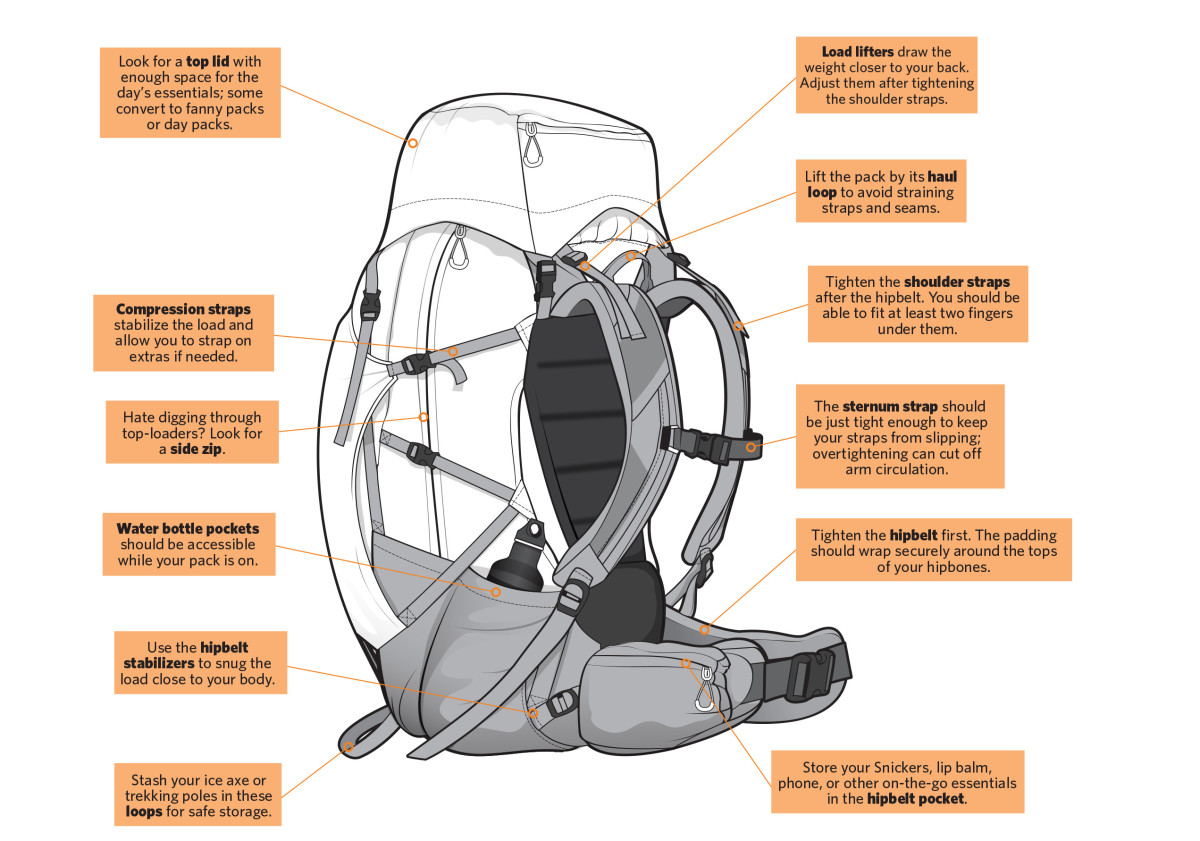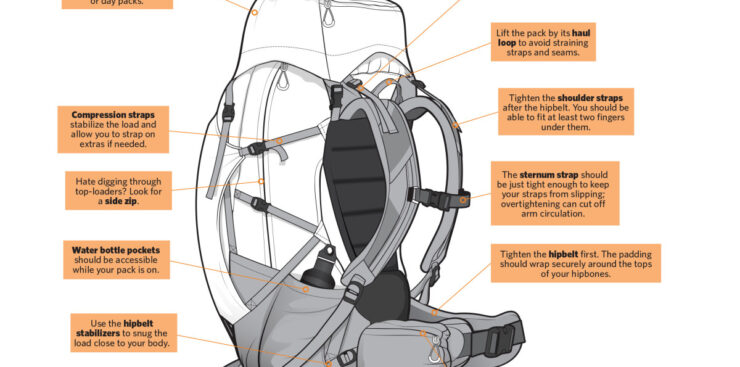 When you decide to go hiking or camping its going to be a great idea to carry and pack a backpack. While you may think that any backpack will work, this is not the case. You need to take into account the size and weight of the person, the gender, how long you will be going, and what things you cannot live without. Organization is important as well. You don't want to be stuck with an extremely heavy bag when you are only going to be gone for the weekend.
When you decide to go hiking or camping its going to be a great idea to carry and pack a backpack. While you may think that any backpack will work, this is not the case. You need to take into account the size and weight of the person, the gender, how long you will be going, and what things you cannot live without. Organization is important as well. You don't want to be stuck with an extremely heavy bag when you are only going to be gone for the weekend.
Backpack Size
When planning on buying a backpack you need to take into account the length of the trip as well as the gender of the carrier. If you are going to be going backpacking it is assumed that it will be at least a two day trip. We also will assume that you will be walking a lot and will be constantly carrying you bag with you.
Length of Trip
For a trip that will last at least two days you are going to want a bag between 2300-4900 cubic inches. This size can carry enough supplies for two to four days. You can actually make this last a bit longer depending on what you pack. I advise that if your trip is going to be more than 6-7 days that you go and buy a larger bag to hold all of your supplies.
Gender
Women are build different than men and men can carry larger loads(generally) than women. You want a bag that is going to fit properly and not have a lot of extra room. If your bag hangs too low on your back you are going to cause extreme strain on your shoulders. Your backpack should fit in the center of your back and have durable staps. Women tend to pack more things than men but this doesn't mean that their packs will be heavier. Just remember that no matter what you pack, it must be proportionate in the bag. Balancing the weight on just one side of the body is going to cause severe pain after a few days.
Maximum Weight
You should never carry more than 30% of your body weight. If you weigh 150 pounds then you can carry up to 45 pounds. Remember to always take your weight into account and find what 30% is. A lot of backpackers pack more than the recommended weight and do so because of inefficient planning.
Weight Distribution
You should plan your packing beforehand. Lay out all the items you plan to take and think about how often throughout the day you will need these items. You should be packing three layers generally. If you have things you know you will only use when setting up camp then these things should go on the bottom. These things include your sleeping things, clothes that you plan on wearing on other days, and toiletries. The second layer should contain heavier items that you will use before sleeping. These things include cookware, portable stoves, food, fuel, and other things that you will need upon stopping somewhere. The top layer is going to be light things again. Think about things you will want access to all throughout the trip. Water bottles, granola bars, bug spray, camera, and things you know you will want to use more than once in a day.
Attaching things outside of your pack
Do not start attaching everything you can think of just because you think you need it. This not only makes you look ridiculous but it also throws off your balance. Things that cannot fit inside the backpack can go on the outside. A good example of this is your sleeping back. That would take up unneeded space inside your bag and will not throw off your balance by being attached to the top of the bag. Other things that should go on the outside are sharp objects, pots with long handles, and walking sticks. Remember that although it can be useful to carry things on the outside you do still need to access the inside of the bag throughout the day.
Options for Hydration
Some bags contain cooler like sections in their bags that allow you to keep water in an easily accessible location while keeping everything cold. If this is out of your budget than you can use an older bag and utilize the external pockets for storing your water in an easily accessible location.
The more that you backpack the more you will learn what you can and can't live without. When you are out there carrying your bag you will appreciate a lighter load. This is generic information that most people do not think about before jumping into the act of hiking or camping. You should always thoroughly plan your trip ahead of time so you can really think about what you need.
